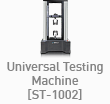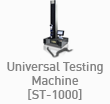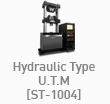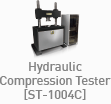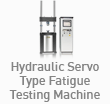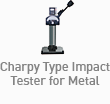Tags
- Materials Testing Machine
- Material Testing Machine
- Compression Testing Machine
- UTM
- Tensile Compression Testing Machine
- Hydraulic Universal Materials Testing Machine
- Hydraulic Tensile Testing Machine
- Tensile Testing Machine
- Universal Materials Testing Machine
- SALT
- ISO574-4
- Plastic Tensile Test
- Tensile Test
- ASTM D822
- ISO 574-1
- ASTM D638
- Strain Gauge
- Environmental Chamber
- Video Extensometer
- Extensometer
- Tensile Grip
- Side action grip
| [ISO] ISO 527-4 Tensile Testing of Plastic Composite Materials | |
|---|---|
| Writer : 관리자(salt@light-salt.kr) Date : 24.01.24 Hit : 55 | |
| Tags : Materials Testing Machine,Material Testing Machine,Compression Testing Machine,UTM,Tensile Compression Testing Machine,Hydraulic Universal Materials Testing Machine,Hydraulic Tensile Testing Machine,Tensile Testing Machine,Universal Materials Testing Machine,SALT,ISO574-4,Plastic Tensile Test,Tensile Test,ASTM D822,ISO 574-1,ASTM D638,Strain Gauge,Environmental Chamber,Video Extensometer,Extensometer,Tensile Grip,Side action grip | |
| Attachments : | |
|
Hello this is SALT CO., LTD., a specialized manufacturer of material testing machines Today, let's get into the tensile testing of plastic composite materials, specifically following the ISO 527-4 international standard
[Tensile Testing of Plastic Composite Materials] Tensile testing of plastic composite materials involves understanding and measuring how the material responds to force and deformation. This test is particularly crucial when plastics or polymer-based materials are used in conjunction with reinforcing materials like fibers (e.g., glass fibers, carbon fibers). Tensile tests on plastic composite materials provide essential information for predicting and designing how these materials will behave in real-world applications.
[International Standards for Tensile Testing of Plastic Composite Materials] Several internationally recognized standards exist for conducting tensile tests on plastic materials:
Now, let's take a closer look at ISO 527-4:
[ISO 527-4] ISO 527-4 covers the tensile testing of fiber-reinforced plastic composite materials. Specifically, this standard defines conditions for tensile testing isotropic and orthotropic fiber-reinforced composite materials, providing standardized test methods. This ensures consistent evaluation of the mechanical properties of plastic composite materials across various industries. The test evaluates the tensile properties of the material, including tensile strength, tensile modulus, Poisson's ratio, and tensile stress-strain characteristics.
[Equipment for ISO 527-4 Testing] To conduct tensile tests on plastic materials according to ISO 527-4, you'll need suitable universal testing machines (UTM) and various accessories. Here are the key requirements:
1) Universal Testing Machine (UTM) : A UTM capable of measuring force and deformation according to the specifications in ISO 527-4 is necessary.
SALT offers a lineup of universal material testing machines suitable for tensile testing.
2) Grips : Appropriate grips are crucial for securely holding the specimen during testing. Salt's provides various grips, including side-action grips and wedge grips.
Salt's Tensile Testing Grip
Salt's Wedge Grip
Salt's Side Action Grip
3) Extensometer
: Used to accurately measure specimen deformation during testing. ISO 527-4 may specify certain types of extension measurement devices. a. non-contact video extensometers
b. automatic extensometers
c. encoder-based extensometers
d. strain gauge-based extensometers
strain gauge sensors and dedicated amplifiers.
4)Temperature and Humidity Control Devices : For certain tests, specific temperature or humidity conditions may be necessary. In such cases, a system to control both the UTM and the testing environment is required.
Salt's offers an environmental chamber-type universal material testing machine (ST-1003)
Using Salt's Universal Material Testing Machine, grips, and extensometer for tensile testing.
Salt Co., Ltd.'s all-purpose material tester provides a variety of grips, extensometers and test solutions to meet the requirements of physical property testing of various materials.
"We value our relationship with you more than just selling our products."
Salt-s@Light-Salt.kr www.light-salt.kr |
|
| Prev | ASTM D624 Standard Test Method for Tear Strength of Conventional Vulcanized Rubber and Thermoplastic |
| Next | ISO 6383-1:2015 Hardness Test of Plastic Film |
|
|
























